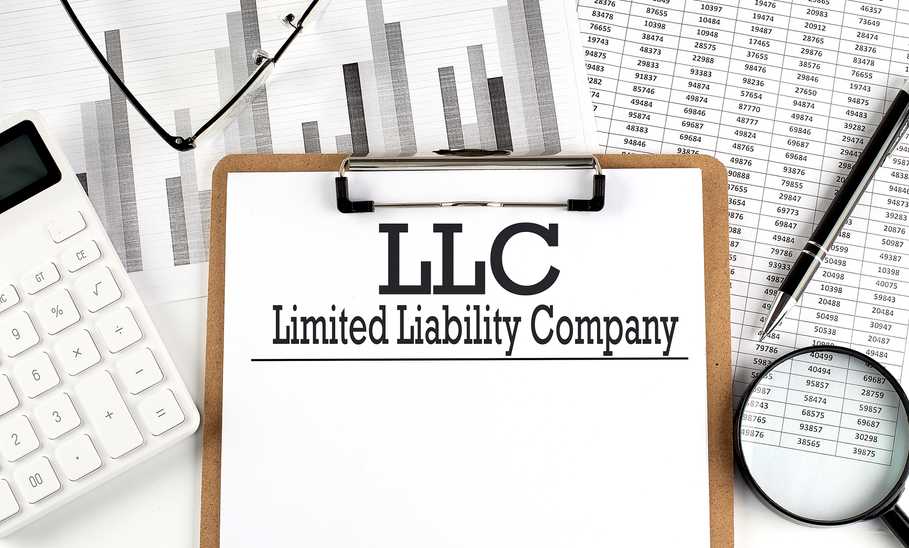One of the first decisions a small-business owner makes is choosing a business structure. A limited liability company (LLC) is a popular option, partly because it shields members from personal liability for business debts and lawsuits. Here's what you need to know about starting an LLC in Massachusetts.
Found is banking built for the self-employed
Fees
Free plan: $0; Plus Plan: $19.99 monthly or $149.99 annual best value; Other fees may apply*
Features
Free business checking account; Free Mastercard© debit card; Helpful tax savings tools; User-friendly bookkeeping support; Fast and easy contractor payments; Professional and customized invoicing; No required fees
Best for
Self-employed individuals; Freelancers; Sole proprietors; Single member LLCs; Gig workers; 1099 Contractors; Small business owners
Found is a financial technology company, not a bank. Business banking services are provided by Piermont Bank, Member FDIC. The funds in your account are FDIC-insured up to $250,000 per depositor for each account ownership category. The Found Mastercard Business debit card is issued by Piermont Bank pursuant to a license from Mastercard Inc. and may be used everywhere Mastercard debit cards are accepted.
Massachusetts LLC state and federal tax requirements
State and federal income taxes
By default, LLCs are pass-through entities. That means each member—not the LLC—reports their share of the LLC's profits and pays income taxes on their state and federal income tax returns. Massachusetts has a flat 5% personalincome tax rate plus a 4% surcharge for income exceeding $1,053,750.
Federal self-employment taxes
LLC members pay the 15.3% federal self-employment tax, including the 12.4% Social Security and 2.9% Medicare tax.
Corporate taxes
If you choose to have your LLC taxed as a C corporation, you'll pay Massachusetts corporate taxes at8% andfederal corporate taxes at 21%. LLCs taxed as C or S corporations pay a state corporate excise tax on tangible personal property or net worth.
Name your Massachusetts LLC
The name must include "limited liability company" or "limited company" or the abbreviation LLC, L.L.C., LC, or L.C. The name can't be the same or "deceptively similar" to an entity authorized to conduct business in the state (search the state's corporate naming database to see if your preferred name is available). If you're not ready to submit your LLC paperwork, you can reserve the name for 60 days byapplying to the Secretary of the Commonwealth and paying a $30 fee.
Appoint a registered agent
LLCs in Massachusettsmust continuously maintain a registered agent (RA) and registered office in the state to receive legal correspondence on the LLC's behalf. The RA must be at least 18, have a physical address (not just a P.O. box) in the state, and be available during regular business hours. TheRA can be a friend or family member (provided they're a state resident), an entity authorized to conduct business in the state, or a registered agent service.
Submit your Massachusetts certificate of organization
A Massachusetts LLC is formedwhen a certificate of organization is filed with the Corporations Division (or at a later time specified in the certificate of organization). The document includes specifics about your LLC and registered agent, among other details. The filing fee is $500, and you can file online, in person, or by mail or fax.
Obtain an Employee Identification Number (EIN)
A sole proprietorship with no employees is theonly business structure in Massachusetts that doesn't need an EIN. You'll also need an EIN to open a business bank account (such as Found) or apply for credit. You can get an EIN for free from the IRS.
Register your LLC with the Department of Revenue
Massachusetts LLCs must register with the state's Department of Revenue to file and pay taxes through MassTaxConnect.
You've opened a business in Massachusetts. Now what?
Once you've formed an LLC in Massachusetts, there are a few other steps to check off.
Get a DBA from your city or town
If your company name and legal business name are different, you'll need to apply for a business certificate (i.e., a DBA or "doing business as" name) in the town or city where your business is located.
Create an operating agreement
Massachusettsdoesn't require LLCs to have operating agreements. Still, one is recommended because it serves as a legal blueprint for the LLC and establishes the members' rights and responsibilities.
File your annual report
Once your LLC is formed, you'll need to file an annual report with the state's Corporations Division on or before the anniversary date when you filed your certificate of organization. The filing fee is $500.
Massachusetts LLCs enjoy the same advantages as LLCs in other states, including liability protection and pass-through taxation. The filing fees to form an LLC in Massachusetts and submit annual reports are relatively steep. Still, numerous programs and resources support small businesses in the state, including loans, grants, tax credits, mentoring, and more.
How long does it take to set up an LLC in Massachusetts?
Setting up an LLC in Massachusetts generally takes several weeks, though expedited processing is available for anextra fee.
What does it cost to create an LLC in Massachusetts?
The certificate of organization filing fee is $500, and you'll pay $500 a year to file your LLC's annual report. You’ll pay more to create an LLC if you hire a professional registered agent or use an LLC filing service like LegalZoom.
LLC formation services handle the paperwork, ensure compliance, and provide guidance while starting an LLC. When choosing an LLC formation service in Massachusetts (or any other state), look for providers with the services you want, transparent pricing structures, positive customer reviews, and helpful customer service.
Pros:
- LLCs shield members from personal liability for business debts and lawsuits.
- LLCs are pass-through entities, so members pay income tax on LLC earnings through their individual tax returns,avoiding double taxation.
- LLCs have fewer record-keeping and compliance requirements than corporations.
Cons:
- Massachusetts charges a $500 filing fee to form an LLC and a $500 filing fee for annual reports.
- Massachusetts has a state income tax, so LLC members pay state and federal taxes on their share of the LLC's profits.
- LLC members pay 15.3% of their income inself-employment taxes.
Resources for Massachusetts LLCs
The Small Business Administration (SBA) and Service Corps of Retired Executives (SCORE) offer helpful tools no matter where your LLC is located. For Massachusetts-specific guidance, check out the following resources:
TIME Stamp: All LLCs must now file a report with FinCEN
As of Jan. 1, 2024, all LLCs must file a Beneficial Ownership Information (BOI) Report with the U.S. Financial Crimes Enforcement Network (FinCEN). If you created your LLC before Jan. 1, 2024, you have until Jan. 1, 2025, to file an initial BOI report. LLCs created in 2024 have 90 calendar days to file, while those formed in 2025 or later have 30 days.
Frequently asked questions (FAQs)
Do LLCs pay taxes in Massachusetts?
Each LLC member reports their share of the LLC's profits and pays income taxes through their state and federal income tax returns, along with the 15.3% self-employment tax. If your LLC is taxed as a C corporation, you'll pay Massachusetts corporate taxes, and LLCs taxed as C or S corporations pay a state corporate excise tax.
Can I create a series LLC in Massachusetts?
A series LLC is an umbrella entity that has one or more subsidiary LLCs (or "series") branching off from a parent LLC. Each series is treated as a separate legal entity, so if one is involved in a lawsuit, the others are protected from liability. Massachusettsdoesn't allow the formation of series LLCs.
Can I file my LLC documents online?
You can file your Massachusetts LLC documents through the Secretary of the Commonwealth's website. Online filing is generally a faster and more convenient way to submit your documents.
The information presented here is created by TIME Stamped and overseen by TIME editorial staff. To learn more, see our About Us page.






